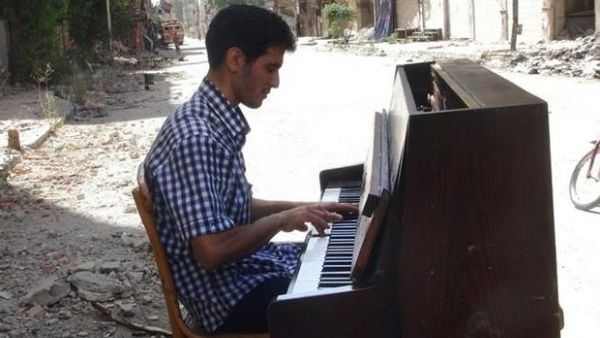'I want to play in the streets of Berlin like I played in the streets of Yarmuk'
It was then that Ahmad, whose music had brought consolation, even a bit of joy, to Yarmuk camp's beleaguered residents, decided to join thousands of others and seek refuge in Europe.
"They burned it in April, on my birthday. It was my most cherished possession," Ahmad told AFP, which is following his odyssey online, step-by-step.
Continue reading on Your Middle East
The Sabra and Shatila massacre is still personal
During the massacre, I was in Youngstown, Ohio. Like Palestinian communities worldwide, we were glued to the TV screens in total shock. It was too painful to just sit and endlessly watch the unfolding event any longer. The news footage of the humanitarian organization workers, wearing masks to protect themselves from the overwhelming stench of death, picked the bodies, one by one, off the piles on which they lie dead. As the bodies were lowered into the hastily dug mass graves, it felt that we too were being lowered in this resting place, with every descending body, over and over.
Continue reading on ePalestine
The magic of returning home: my trip back to Egypt
For five years I have heard, “It’s not safe, It’s not the time to go, hold on, wait, not yet, not now.” The revolution, and stories of police torture, imprisonment, violence and the constant state of political uncertainty, delayed my eagerness and set me back.
But then I saw it with my own eyes; it shone all around me, a great big, dirty, honking metropolis. I breathed in its filthy air; I relaxed into it, as one does a warm bath after a long day. I was amazed that I had made it here, and I was angry with myself for not having come sooner.
Continue reading on Egyptian Streets







